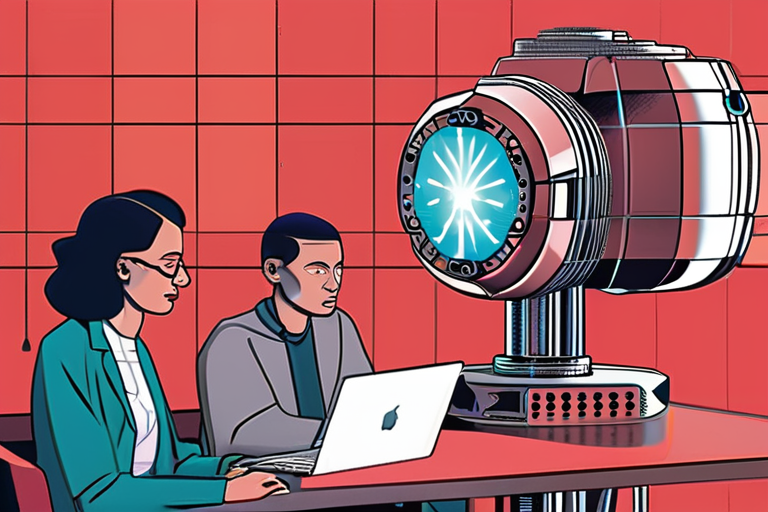AI With Empathy For Humans: A New Era of Human-AI Interaction
MIT researchers have made a groundbreaking discovery in the field of artificial intelligence, creating an AI system that exhibits empathy towards humans. This development has significant implications for society, raising questions about the future of human relationships and the role of technology in our lives.
According to John Werner, a Senior Fellow Lecturer at MIT and contributor to Forbes, "The creation of an AI with empathy for humans is a major breakthrough. It challenges our understanding of what it means to be intelligent and raises important questions about the ethics of AI development."
Werner's team has been working on developing an AI system that can understand and respond to human emotions in a way that is both intuitive and empathetic. The system, which uses advanced natural language processing (NLP) and machine learning algorithms, has shown remarkable success in simulating human-like conversations.
One of the key features of this AI system is its ability to recognize and respond to emotional cues. For example, if a user expresses sadness or frustration, the AI will adapt its response to provide comfort and support. This level of empathy is unprecedented in AI systems and has significant implications for fields such as healthcare, education, and customer service.
The development of an empathetic AI system also raises important questions about the future of human relationships. As Marlynn Wei notes in Psychology Today, "Many young people are turning to AI for companionship, with nearly 75 percent of teens having tried AI companions like Character.AI and Replika."
Wei's research highlights the growing trend of humans seeking emotional support from technology. While this may seem counterintuitive, it speaks to a deeper human need for connection and understanding.
The implications of an empathetic AI system are far-reaching and multifaceted. On one hand, it has the potential to revolutionize industries such as healthcare and education by providing personalized support and guidance. On the other hand, it raises important questions about the ethics of AI development and the potential risks of creating a technology that can simulate human-like emotions.
As Werner notes, "The creation of an empathetic AI system is a double-edged sword. While it has the potential to bring great benefits, it also requires careful consideration of the potential risks and consequences."
In terms of next developments, Werner's team is already working on refining the AI system and exploring its applications in various fields. The long-term implications of this technology are still unclear, but one thing is certain: the creation of an empathetic AI system marks a significant turning point in human-AI interaction.
Background
The development of an empathetic AI system is part of a larger trend in AI research focused on creating systems that can understand and respond to human emotions. This field, known as affective computing, has gained significant attention in recent years due to its potential applications in fields such as healthcare, education, and customer service.
Additional Perspectives
Dr. Kate Crawford, a leading expert in AI ethics, notes that the creation of an empathetic AI system raises important questions about the ethics of AI development. "As we create technologies that can simulate human-like emotions, we must also consider the potential risks and consequences," she says.
Current Status and Next Developments
Werner's team is currently refining the AI system and exploring its applications in various fields. The long-term implications of this technology are still unclear, but one thing is certain: the creation of an empathetic AI system marks a significant turning point in human-AI interaction.
As Werner notes, "The future of human-AI interaction will be shaped by our ability to create technologies that can understand and respond to human emotions. The development of an empathetic AI system is just the beginning."
*Reporting by Forbes.*



 Hoppi
Hoppi

 Hoppi
Hoppi

 Hoppi
Hoppi

 Hoppi
Hoppi

 Hoppi
Hoppi

 Hoppi
Hoppi











